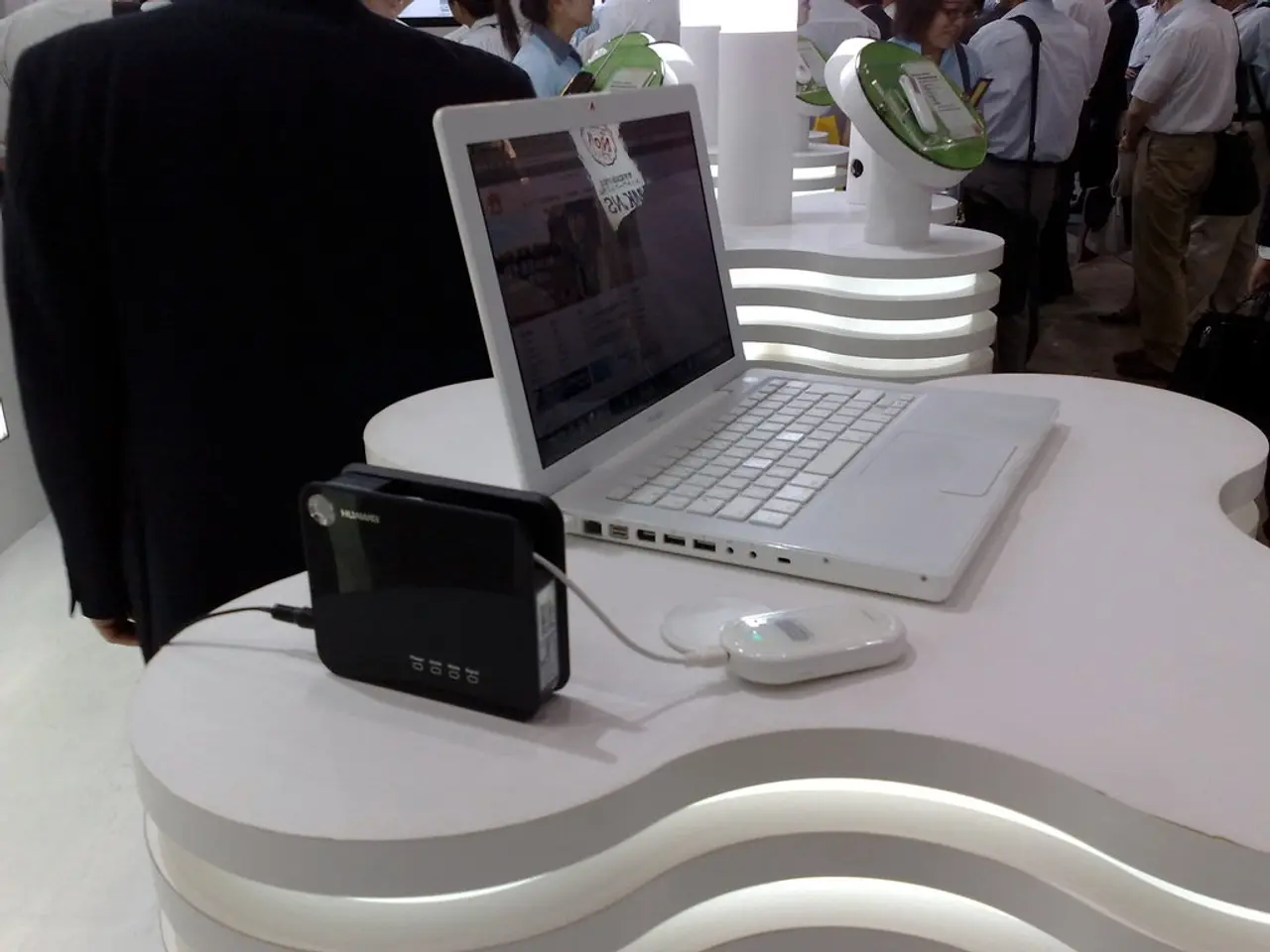Computers like Copilot and Apple's M3 MacBooks make an appearance in the tech world.
In the realm of high-performance computing, two standout devices are making waves: Microsoft's Copilot+ PCs and Apple's M3 MacBooks. Each offers unique advantages, catering to different needs and preferences.
Microsoft's Copilot+ PCs, optimised for use with Visual Studio Code, boast a key feature that sets them apart: the ability to suggest entire blocks of code based on the user's current and past coding practices. These devices also benefit from Microsoft's ecosystem, including native support for Windows-specific software and tools.
On the other hand, Apple's M3 MacBooks continue their tradition of tightly integrating hardware with macOS. These devices are especially beneficial for developers building applications for iOS, macOS, and other Apple platforms, thanks to optimisations like Metal for graphics and Swift for programming.
Performance-wise, Copilot+ PCs feature specialized Neural Processing Units (NPUs) for on-device AI, offering near-instant AI task execution like real-time translation and image generation. Some models, especially Snapdragon-based, claim up to 58% faster general performance and 47% faster AI performance than M3 MacBooks. However, Intel- and AMD-powered Copilot+ variants have strong CPU performance but often less battery life than ARM-based ones.
Apple’s M3 MacBooks use Apple’s own M-series chips with general-purpose AI acceleration integrated into the CPU/GPU. The M3 models offer strong multicore and rendering performance improvements over previous generations but focus on a balance of power and efficiency within a tightly integrated system.
Optimization-wise, Copilot+ PCs focus on local AI processing, improving speed, privacy (data stays local), and battery efficiency. ARM-based Copilot+ devices excel in battery life, often exceeding 18-20 hours, and responsiveness of AI without relying on the cloud. Apple’s M3 MacBooks benefit from deep hardware-software integration, optimization across macOS and apps, and energy-efficient ARM architecture, resulting in excellent battery life and smooth performance, particularly for creative workloads.
In terms of software compatibility, Copilot+ PCs run Windows 11 primarily on ARM-based CPUs but also Intel/AMD. ARM models offer great battery life and AI acceleration but may have limited compatibility with legacy x86 Windows apps, relying on emulation which may affect some niche software workflows. Intel/AMD Copilot+ models offer better backward compatibility with traditional Windows apps. M3 MacBooks run macOS with native support for Apple Silicon apps. Compatibility for Intel-based Mac apps is good through Rosetta 2 emulation, usually seamless.
When it comes to user experience, Copilot+ PCs emphasize AI-enhanced features directly on-device, faster AI responsiveness, and long battery life, making them ideal for users valuing privacy and AI-heavy productivity on Windows. Devices vary widely in design and weight depending on the manufacturer and chip used. The Surface Laptop 7 is a notable example with a quality webcam and speakers. M3 MacBooks offer a consistent, polished user experience with excellent displays, build quality, and smooth macOS integration. They are favoured by creatives and professionals for their performance in graphics, video editing, and multicore tasks with models like the 16-inch MacBook Pro featuring the M4 generation.
In summary, Copilot+ PCs stand out for their dedicated AI hardware, superior local AI performance, and potential Windows ecosystem flexibility (especially on Intel/AMD models), but may face some legacy app compatibility concerns on ARM. M3 MacBooks provide seamless integration between hardware and software, excellent general performance, and a mature app ecosystem optimized for macOS with less emphasis on specialized AI hardware. User choice depends on preferences for AI functionality, software needs, and platform ecosystem.
- Microsoft's Copilot+ PCs, apart from their compatibility with Windows-specific software, boast a unique characteristic - the ability to suggest entire blocks of code, thanks to their integration with artificial-intelligence technology.
- Apple's M3 MacBooks, beside their excellent graphics and video editing performance, are integrated with general-purpose AI acceleration, providing improved multicore and rendering performance.
- Performance-wise, Copilot+ PCs with Neural Processing Units (NPUs) offer near-instant AI task execution like real-time translation and image generation, although Intel- and AMD-powered Copilot+ variants may have less battery life than ARM-based ones.
- In terms of software compatibility, Copilot+ PCs on ARM-based CPUs may have limited compatibility with legacy x86 Windows apps, while M3 MacBooks offer native support for Apple Silicon apps, ensuring a smooth user experience.








